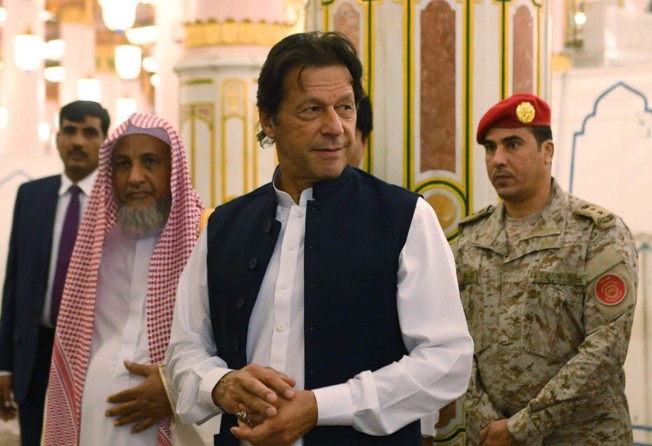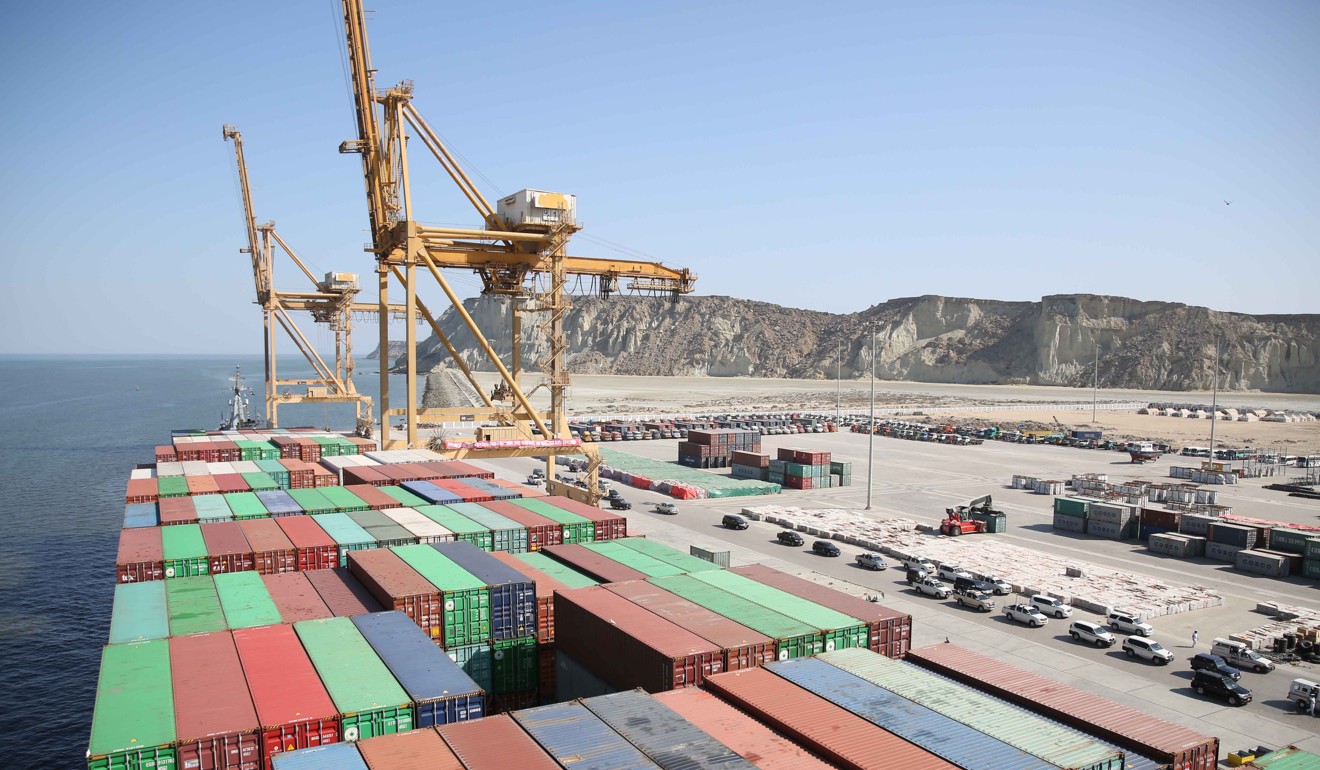Why Pakistan is backing away from Chinese-funded infrastructure projects
- Adnan Aamir says concern over unfair terms means Pakistan’s new government is less enamoured of the China-Pakistan Economic Corridor than previous leaders
- The nation is running up huge debts, and yet not a dollar of the Chinese loans has entered Pakistani banking channels

In April 2015, Pakistan, led by the Pakistan Muslim League-Nawaz, signed agreements aimed at establishing a China-Pakistan Economic Corridor (CPEC). The collection of infrastructure projects, the flagship of China’s global Belt and Road Initiative, was called a “game changer” for Pakistan. Some 3½ years on, however, a new government in Pakistan, led by Imran Khan's Pakistan Tehreek-i-Insaf party, is taking steps to scale it back.
During the tenure of former prime minister Nawaz Sharif, criticising the economic corridor project was almost akin to criticising Pakistan itself. Now, members of the new cabinet are openly critical of the huge project.
Abdul Razak Dawood, a scion of a business family and the minister for commerce and industry, told the Financial Times that the new government would review all CPEC projects. He said that the agreements were unfair to Pakistani companies and should be put on hold for a year, so they could be revised if necessary.
The move and Dawood’s comments echo the growing resentment against CPEC in Pakistani power circles, although Dawood later said his quotes had been taken out of context. Chinese Foreign Minister Wang Yi also met his Pakistani counterpart, Shah Mehmood Qureshi, in New York and maintained that “China and Pakistan are all-weather strategic partners”.
However, the Pakistani government has gone on to suspend 455 development projects, some of which are part of CPEC, on the flimsy pretext of austerity. The China-Pakistan Economic Corridor is a US$62 billion collection of projects funded by Beijing. How could Pakistan achieve its goal of reducing public expenditure by suspending Chinese-funded projects? More likely, it is a way to scale down CPEC without raising the ire of its all-weather friend.
In another unexpected move, Pakistan invited Saudi Arabia to become part of the CPEC programme and to develop a massive refinery complex near the Chinese-funded Gwadar port. Tellingly, Khan chose Saudi Arabia, not China, as the first country to visit after taking office. Later, Pakistan said Saudi Arabia would not become a “collateral strategic partner” in the CPEC programme, but its intention to dilute the influence of China is unmistakable.
Why is Khan’s government intent on scaling down CPEC and China’s influence? One aforementioned reason is the growing feeling among the decision-making elite in Pakistan that the agreements are unfair. Such concerns have been raised over the past three years, but the new government is taking them seriously.
According to the few financial details of CPEC that are available, Pakistan is not benefiting significantly from the programme. Reportedly, although China has lent Pakistan US$26 billion-US$30 billion for power and transport projects that are part of the economic corridor, not a single dollar has entered Pakistani banking channels.
Instead, Chinese banks give the loans to Chinese companies, which buy equipment in China and use it in Pakistan. Consequently, instead of gaining economic benefits, Pakistan is running up huge debts and risking fiscal default.

The new government has another reason to roll back CPEC: namely, this is not its baby. Rather, it was a project started under the old government, which got a lot of political mileage from it. Politically, it makes no sense for the current administration to actively pursue its predecessor's project.
Meanwhile, Pakistan’s foreign reserves are dwindling and it has asked the International Monetary Fund for help, after neither China nor Saudi Arabia gave it financial help. Pakistan is hoping for up to US$15 billion in IMF loans, but faces another CPEC-related problem.
The IMF says it requires “absolute transparency” about Pakistan’s Chinese loans before it bails the country out. Yet the financial details of CPEC were closely guarded secrets under the previous government. If the current government makes the details public, the programme is likely to come under more fire in Pakistan.
The direction of the China-Pakistan Economic Corridor will become clearer once Khan visits China in the first week of November. If Beijing manages to earn Khan’s full support, he may stop scaling down the project. However, given the developments of the past few months – from China’s lack of interest in bailing out Pakistan to allegations of unfairness – there is unlikely to be any change in government thinking.
Adnan Aamir is a journalist and researcher. Follow him on twitter @iAdnanAamir. Email: [email protected]